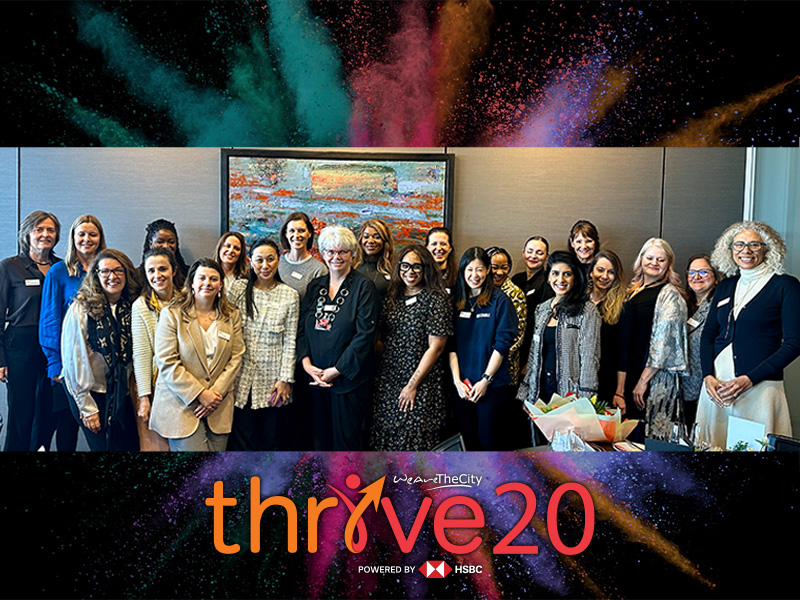
By Anna Panczyk
It’s challenging, yet rewarding, to be a business leader or entrepreneur.
As the country tackles new ways of working after three very strange years, now is a really good time for women to take a fresh look at the support networks we proactively build and how best to advocate for ourselves and our careers.
What stops us from reaching out for help
Among Gen X and older female Millennials like me who grew up being told we should aim to “have it all”, there’s still a sense that asking for assistance is a sign of weakness. We should reframe it as a positive, not a vulnerability and see it as a crucial skill, a sign of self-awareness and honesty that can lead to greater success and fulfilment.
When I started my professional career, coaching was an unfamiliar concept and access to training was limited. What were called 1-on-1 sessions were perceived as ‘oh, she has a problem’ rather than ‘let’s talk and we will figure something out together’. As a result, I was afraid that asking questions or for help would be seen as a sign of weakness, raising a question mark over whether I was the right person for the job/challenge.
As a result, I learnt to operate in my own bubble where I felt comfortable and safe. What I didn’t realise at the time was that I was isolating myself from the rest of the team, my peers and the industry. I assumed it was the only safe way to operate.
However, when someone asked me for help, I did it with enormous pleasure and we would have fun and find fulfilment in finding solutions and growing together.
Eventually, I went through a painful process where I had to break away from some of my assumptions and behaviours and build my own way of partnering with others. That process taught me that a team could achieve so much more than any one person working alone.
How to approach building a support network
Outside of the immediate workplace, there’s real value in seeking out and cultivating your own diverse network of allies, mentors, and peers who can provide guidance, encouragement and perspective. There’s no right or wrong way to proceed; simply focus on creating a network that feels right for you.
The best network is one that includes a mix of individuals. The more diverse the network, the more diverse the range of perspectives you can access. Building a network is not just about finding help with one specific topic. It takes years to create a powerful group of individuals who can support you through various challenges at different stages of your life or business. You never know who might be the best person to help you in any given moment.
Balance a formal approach, such as a mentor, coach or a female support organisation with more casual arrangements – coffee or lunch with former colleagues, a supportive boss or a past client. Focus on the kind of people who are open to partnerships and remember to follow up and stay ‘relevant’. Connect where possible, but don’t oversell yourself. Keep investing in those relationships, and very soon you’ll become an attractive member of your own network that you’ve built up yourself.
The work that goes into building a network
Drawing from my own experience as well as acting as a mentor and advocate for women in the advertising and tech industries I’ve learnt a lot about what goes into building a network.
Here are my key pointers:
- Building a network is never a one-way partnership, you need to give so as to receive. Networking is not just about meeting people; it’s about understanding how you can help them, for example by connecting them with someone who may be able to support them to address the challenges they face.
- Take care of your network because it’s a relationship you keep building and nurturing and the worst approach is to treat it as a one-off project; your work never stops. Keep investing time, contacting people, checking in with them, staying connected and following up on conversations and meetings.
- Get involved in your industry’s key events and become a member of organisations. Don’t be there for the sake of being “seen,” but to find a topic, activity, or project that you can get involved in and share your knowledge, experience, and insights. Never think that you’re not interesting or that someone else is better than you. As an individual, you have so much to offer, so give yourself the space and time to add value. Leave your comfort zone, take action, and you’ll be surprised how fast your network starts growing.
- Do not rely on one person. There is a significant difference between having a business or life coach and having a network. Your network is a group of individuals who can support you, act as your springboard, or simply share their experience and knowledge to help you make your own decisions or give you their perspective on your decisions.
- Not every individual you meet will become part of your network, and that’s okay, so don’t treat it as a failure. Place authenticity at the heart of what you do and focus on building long-term connections. It can be tough to start with, especially if you’re a natural introvert, but over time, you’ll find your way and build confidence. Being brave and bold is one of the hardest lessons to learn, but it pays off. Today many of my contacts have transformed into friendships, and yes, we do business together on many occasions because we trust and can rely on each other.
Some important guiding principles
Hand in hand with building our own support network comes self-awareness. It is important to acknowledge what’s important to each of us as individuals and what makes us happy. Think about where you want to see yourself in six or twelve months, not where others want you to be. This has to be the starting point for building an effective network.
We can all too easily allow ourselves to be driven by the goals that others set for us, not what’s important for us. Whenever you think about what’s next, think of it in terms of “what’s good for me” framed by your interests, strengths, skills, values and the life you want to lead. Doing this turned out to be a pivotal moment in my career as it empowered me to leave the ‘golden cage’ that others kept me in and allowed me to take charge of my own destiny.
 About the author
About the author
Anna is chairwoman, Brand New Galaxy Supervisory Board; tech investor and co-founder of Sustainable Fashion and Social Media Referral start ups. Also formerly CEO, Grey London.








